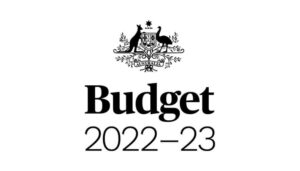
For the 2019/20 financial year, the concessional (deducted) superannuation contribution cap is $25,000.
Concessional contributions include:
- Employer contributions (including contributions made under a salary sacrifice arrangement); and
- Personal contributions claimed as a tax deduction.
If you have more than one fund, all of your concessional contributions made to all of your funds are added together and counted towards the concessional contributions cap.
This means, during the 2019/20 financial year (subject to our comments below regarding unused concessional caps), you are generally limited to $25,000 in concessional (deducted) contributions in a financial year.
Unused concessional cap carry forward
From the 2019/20 financial year onwards, if your total superannuation balance is less than $500,000 at the end of the previous financial year, you may be able to contribute more than your $25,000 concessional cap by using up prior year unused cap. Any unused cap from the 2018/19 financial year onwards can be carried forward for up to 5 years. After 5 years, if the unused cap is not utilised, it will be lost.
For example, in the 2018/19 financial year, if you only made concessional contributions of $12,000, you have $13,000 unused cap. If your total superannuation balance is less than $500,000 as at 30 June of the prior year, you can carry forward the $13,000 unused cap to be used at any time between the 2019/20 financial year to the 2023/24 financial year. For example, in the 2019/20 financial year, you could contribute a total of $38,000 ($25,000 for the 2019/20 cap plus $13,000 for the unused 2018/19 cap).
Making superannuation contributions
Please call us if you are considering making personal contributions superannuation to check whether:
(a) you can claim a tax deduction for making personal contributions
(b) how much you may be able to claim as a deduction
(c) whether it is tax effective for you to make the personal contribution
(d) what process needs to be followed in order to make the contribution
You also need to consider whether making a contribution fits within your overall financial plan as advised by your financial advisor.
DISCLAIMER: The information in this article is general in nature and is not a substitute for professional advice. Accordingly, neither TJN Accountants nor any member or employee of TJN Accountants accepts any responsibility for any loss, however caused, as a result of reliance on this general information. We recommend that our formal advice be sought before acting in any of the areas. The article is issued as a helpful guide to clients and for their private information. Therefore it should be regarded as confidential and not be made available to any person without our consent.

Jeanette has over 20 years experience as an accountant in public practice. She is a Chartered Accountant, registered tax agent and accredited SMSF Association advisor. When she is not helping business owners grow their empires, you will likely find her out running on the trails or at the gym. Book in to see Jeanette today.




